

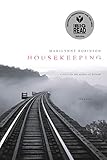 My professional reading life is fairly regimented — I have to be attentive to new, newsworthy books to assign for review or to write about myself — and my personal reading habits have become suitably random in response, subject to mood as much circumstance, which, this year, meant the purchase of a new coat. Said coat, a voluminous and awful garment — moss green, somehow both pilly and prickly — has, to its credit, pockets like wells. Which meant that I, who do most of my reading on the Q train to and from work, fell in with a group of regular traveling companions. Four books (or rather, 3 and 3/4), whose slenderness was, at first, their chief qualification, took up permanent residence upon my person: a new Picador edition of Marilynne Robinson’s Housekeeping that’s about the size of a pack of cards; my friend Brenda Shaughnessy’s 2012 collection of poems Our Andromeda, a book I worship; my husband’s high school copy of Macbeth minus an act or two; and Paula Fox’s Desperate Characters.
My professional reading life is fairly regimented — I have to be attentive to new, newsworthy books to assign for review or to write about myself — and my personal reading habits have become suitably random in response, subject to mood as much circumstance, which, this year, meant the purchase of a new coat. Said coat, a voluminous and awful garment — moss green, somehow both pilly and prickly — has, to its credit, pockets like wells. Which meant that I, who do most of my reading on the Q train to and from work, fell in with a group of regular traveling companions. Four books (or rather, 3 and 3/4), whose slenderness was, at first, their chief qualification, took up permanent residence upon my person: a new Picador edition of Marilynne Robinson’s Housekeeping that’s about the size of a pack of cards; my friend Brenda Shaughnessy’s 2012 collection of poems Our Andromeda, a book I worship; my husband’s high school copy of Macbeth minus an act or two; and Paula Fox’s Desperate Characters.
I read and reread many books in 2015 (my favorite books of the year can be found here and here), but these are the books I kept in orbit, the books I wore out. Desperate Characters, in particular, I couldn’t stop rereading. It’s the type of novel it’s become so fashionable to deride — one of the “quiet” books about middle-aged women staring out of windows, enjoying quiet epiphanies — when it’s really a wallop of a book, a barbed portrait of a marriage, not to mention a brilliant take on gentrification, white fears of black and brown people, the hostile insularity of the nuclear family, and how power reproduces and how power conceals itself. And from time to time, sure, the heroine stares out of a window.
(It occurs to me now that these books are more connected than not — they’re all about paralysis and ambition, about moving through trauma, trying to move past it. Reading choices can seem so random, but aren’t we always just digging deeper and deeper grooves into old obsessions?)

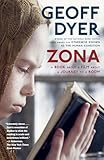
 But it was also a year of discoveries — the late Czech novelist Bohumil Hrabal was one, the poet Anne Boyer another — and rediscoveries. I taught a class in criticism, which allowed me to go back and reread a few favorites — The Sight of Looking at Death by T.J. Clark, Zona by Geoff Dyer, Changing My Mind by Zadie Smith, My Poets by Maureen N. McLane, Sontag and Kael: Opposites Attract Me by Craig Seligman.
But it was also a year of discoveries — the late Czech novelist Bohumil Hrabal was one, the poet Anne Boyer another — and rediscoveries. I taught a class in criticism, which allowed me to go back and reread a few favorites — The Sight of Looking at Death by T.J. Clark, Zona by Geoff Dyer, Changing My Mind by Zadie Smith, My Poets by Maureen N. McLane, Sontag and Kael: Opposites Attract Me by Craig Seligman.
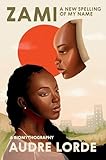
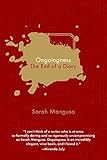
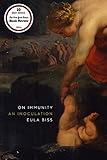 Most of all I was grateful for the number of writers finding fresh and intelligent ways to think about family life — I’m thinking of recent books like The Argonauts by Maggie Nelson, On Immunity by Eula Biss, Ongoingness by Sarah Manguso, 10:04 by Ben Lerner — but also older books, beloved books I returned to as I wrote about these issues in an essay for Bookforum, including Zami by Audre Lorde, The Salt Eaters by Toni Cade Bambara, The Essential Dykes to Watch Out For by Alison Bechdel. These books position the family not in conflict with creativity but an extension of it, not a way of retreating from our obligations to our communities but a reaffirmation of them. It’s a lovely thought — that what tethers us, burdens us can somehow also set us free — especially to one in a coat bogged down with books, standing on a subway platform too early in the day.
Most of all I was grateful for the number of writers finding fresh and intelligent ways to think about family life — I’m thinking of recent books like The Argonauts by Maggie Nelson, On Immunity by Eula Biss, Ongoingness by Sarah Manguso, 10:04 by Ben Lerner — but also older books, beloved books I returned to as I wrote about these issues in an essay for Bookforum, including Zami by Audre Lorde, The Salt Eaters by Toni Cade Bambara, The Essential Dykes to Watch Out For by Alison Bechdel. These books position the family not in conflict with creativity but an extension of it, not a way of retreating from our obligations to our communities but a reaffirmation of them. It’s a lovely thought — that what tethers us, burdens us can somehow also set us free — especially to one in a coat bogged down with books, standing on a subway platform too early in the day.
More from A Year in Reading 2015
Don’t miss: A Year in Reading 2014, 2013, 2012, 2011, 2010, 2009, 2008, 2007, 2006, 2005
The good stuff: The Millions’ Notable articles
The motherlode: The Millions’ Books and Reviews
Like what you see? Learn about 5 insanely easy ways to Support The Millions, and follow The Millions on Twitter, Facebook, Tumblr.









